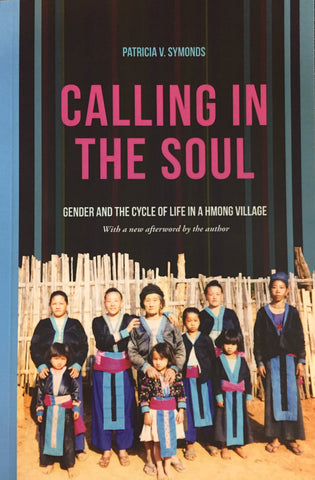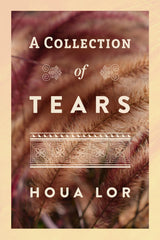Calling In The Soul: Gender And The Cycle Of Life In A Hmong Village
Sold out.
Paperback, 336 pages, 6x9, English
by Patricia V. Symonds
ISBN: 978-0-295-99421-5
"Calling in the Soul" (Hu Plig) is the chant the Hmong use to guide the soul of a newborn baby into its body on the third day after birth. Based on extensive original research conducted in the late 1980s in a village in northern Thailand, this ethnographic study examines Hmong cosmological beliefs about the cycle of life as expressed in practices surrounding birth, marriage, and death, and the gender relationships evident in these practices. The social framework of the Hmong (or Miao, as they are called in China, and Meo, in Thailand), who have lived on the fringes of powerful Southeast Asian states for centuries, is distinctly patrilineal, granting little direct power to women. Yet within the limits of this structure, Hmong women wield considerable influence in the spiritually critical realms of birth and death.
Patricia Symonds situates her study within the landscape of northern Thai mountain life and anthropological perspectives on the Hmong, and then focuses on 'Flower Village', telling detailed stories of births, marriages, and deaths. Recurring motifs emerge: the complementarity of women's and men's roles in daily life and in the otherworld, and their reversal at critical moments; the importance of the brother-sister relationship; the social and spiritual significance of the ceremonial clothing women create, especially their embroidered 'flower cloth' and the ambiguously nuanced sev, or 'modesty aprons', they wear; the endlessly cyclical nature of life, from birth to death to birth again; the importance of sound and silence at times of transition; and the complex connections between the land of the living and the land of the dead.
Hmong women's primary source of power in the patriline is their fecundity, through which they influence key spiritual aspects of the life cycle. This value and power is evident in the division of bride-price into two parts: 'milk and care money', which compensates a woman's parents for her upbringing; and payment for the 'birth shirt', or placenta, of the child the young wife will produce. Through provision of birth shirts for fetuses and of elaborately embroidered cloth shirts for the dead, women literally clothe the soul through cycles of rebirth.
An epilogue and appendixes provide a discussion of the impact of HIV/AIDS on the Hmong of Thailand, cultural factors in HIV transmission, and strategies for containment; complete Hmong texts and English translations of "Calling in the Soul," and "Showing the Way," the chant which guides the soul of the deceased through the land of darkness and back to reincarnation in a new body in the land of light; Flower Village demographic information; and an account of a shamanic healing and outline of Hmong health care issues in the United States. Calling in the Soul will be of interest to sociocultural anthropologists, medical anthropologists, Southeast Asianists, and gender specialists. Patricia V. Symonds is adjunct associate professor of anthropology at Brown University.






